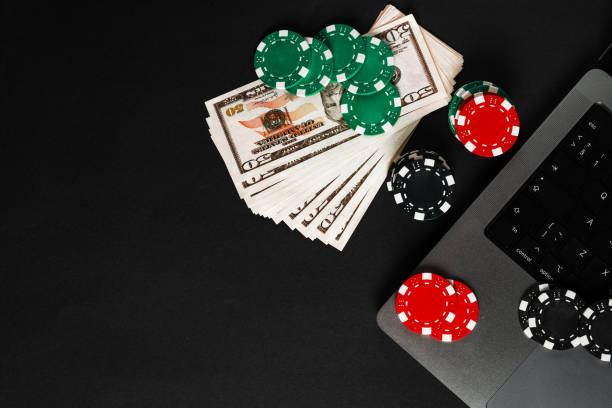Introduction
Gambling can be a thrilling pastime, offering entertainment, excitement, and the chance to win money. But like all forms of recreation that involve risk, it comes with responsibilities. For most players, gambling remains a fun activity enjoyed occasionally. However, for others, it can spiral into a harmful pattern that impacts finances, relationships, and mental health.
That’s why understanding responsible gambling is essential. It’s not about taking the fun out of the game—it’s about ensuring that the fun never turns into regret. In this article, we’ll walk you through how to gamble responsibly, highlight the common warning signs of gambling harm, and provide practical tools to keep play safe and enjoyable.
What is Responsible Gambling?
Responsible gambling is the practice of setting healthy limits on your play, staying in control, and recognising gambling as entertainment—not a way to make money. It means:
- Gambling for fun, not as a financial strategy.
- Setting time and money limits before you start.
- Never chasing losses.
- Knowing when to stop.
Online casinos, regulators, and advocacy groups encourage responsible gambling because it benefits everyone—players stay safe, and operators build trust.
The Core Principles of Responsible Gambling
Here are the golden rules every player should follow:
- Budget Wisely – Decide how much you can afford to lose, and never exceed that.
- Time Management – Set a timer; when it’s up, stop playing.
- Treat Gambling as Entertainment – It’s not a way to pay bills.
- Stay Sober and Clear-Minded – Alcohol and gambling don’t mix.
- Never Borrow to Gamble – Using loans or credit for gambling is a red flag.
These principles act like seatbelts—simple but powerful safeguards.
Warning Signs of Problem Gambling
Spotting the warning signs early is key to preventing gambling harm. Here are the most common red flags:
- Financial Struggles – Borrowing money, using savings, or missing bills due to gambling.
- Chasing Losses – Doubling down in an attempt to win back money.
- Lying About Gambling – Hiding your play from family or friends.
- Mood Swings – Irritability, anxiety, or depression linked to gambling outcomes.
- Neglecting Responsibilities – Ignoring work, family, or social life.
If you recognise any of these in yourself or someone you know, it may be time to take action.
Tools for Responsible Gambling
Modern casinos provide built-in tools to help players stay in control. These include:
- Deposit Limits – Set daily, weekly, or monthly spending caps.
- Loss Limits – Prevent overspending after a bad run.
- Reality Checks – On-screen reminders of time spent playing.
- Self-Exclusion – Temporarily or permanently block access.
- Account History – Track wins and losses for transparency.
Using these tools doesn’t mean you’re weak—it means you’re smart.
The Psychology of Gambling
Understanding why people gamble can help explain why problems develop. Gambling activates the brain’s reward system, releasing dopamine when you win. But here’s the catch: even near-misses and anticipation can trigger the same chemical response.
This creates a loop where players chase the high of “almost winning,” often leading to longer sessions and riskier bets. Responsible gambling helps break this loop by setting boundaries before emotions take over.
The Role of Technology in Safer Gambling
Technology is making gambling safer than ever before. AI algorithms now monitor behaviour, identifying risky patterns such as:
- Longer sessions without breaks.
- Escalating bets.
- Multiple deposit attempts in short timeframes.
Casinos use this data to offer interventions, such as reminders, cooling-off options, or account restrictions. The goal is to create a safer environment while still offering entertainment.
Middle Section: Responsible Gambling in the Digital Age
With the rise of mobile casinos and real-time betting, staying in control is more important than ever. Access is instant, and games are available 24/7, which increases both the convenience and the risks.
This is where responsible gambling education and tools become crucial. Many players now explore guides, communities, and platforms dedicated to safer gambling practices. If you’re stepping into the world of sports betting , taking the time to understand how to gamble responsibly can make all the difference between a fun experience and a harmful one.
Supporting Friends and Family
If someone you know may be struggling with gambling, here are ways you can help:
- Start the Conversation Gently – Use empathy, not judgment.
- Encourage Limits – Suggest tools like deposit caps.
- Offer Alternatives – Engage in other social activities.
- Know When to Seek Help – Professional support may be necessary.
Supportive conversations can often open the door to recovery.
Where to Get Help
If gambling is no longer fun, professional help is available. In Oceania and worldwide, these organisations provide resources:
- GambleAware (Australia)
- Gambling Helpline New Zealand
- Gamblers Anonymous International
- National Council on Problem Gambling (US)
These groups offer helplines, counselling, and online resources for those in need.
The Future of Responsible Gambling
The future will combine regulation, technology, and player education:
- AI-Powered Monitoring – Casinos detecting problem behaviour in real time.
- Blockchain Transparency – Ensuring fairness and accountability.
- Government Partnerships – Stronger laws protecting players.
- Global Collaboration – Shared resources across countries.
Responsible gambling isn’t just a checkbox—it’s becoming the foundation of sustainable gaming.
Conclusion
Gambling should always be about fun, entertainment, and excitement—never financial stress or emotional harm. By understanding how to gamble responsibly and recognising the warning signs, you can protect yourself and others from the risks.
The tools are there, the education is available, and the future of online casinos is leaning more towards safer, smarter play. Whether you’re spinning slots, betting on sports, or enjoying live dealer tables, the golden rule remains the same: play for fun, not for need.
Because at the end of the day, the real jackpot is keeping gambling safe, enjoyable, and firmly under your control.

